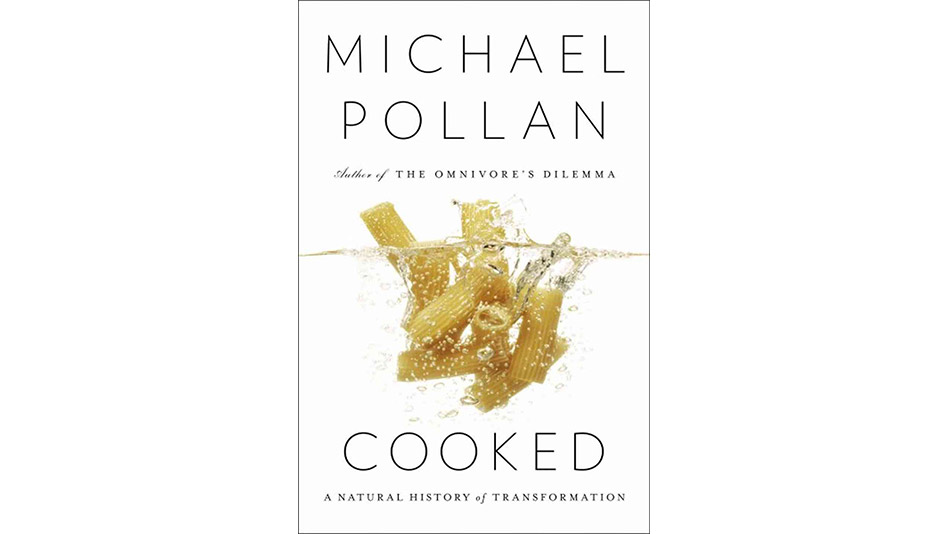
Why Cooking Is One of the Most Worthwhile Things You Can Do
At bottom cooking is not a single process but, rather, comprises a small set of technologies, some of the most important humans have yet devised. They changed us first as a species, and then at the level of the group, the family, and the individual. These technologies range from the controlled used of fire to the manipulation of specific microorganisms to transform grain into bread or alcohol all the way to the microwave oven—the last major innovation. So cooking is really a continuum of processes, from simple to complex, and Cooked is, among other things, a natural and social history of these transformations, both the ones that are still part of our everyday lives and the ones that are not. Today, we're apt to think of making cheese or brewing beer as "extreme" forms of cookery, only because so few of us have ever attempted them, but of course at one time all these transformations took place in the household and everyone had at least a rudimentary knowledge of how to perform them. Nowadays, only a small handful of cooking's technologies seem within the reach of our competence. This represents not only a loss of knowledge, but a loss of a kind of power, too. And it is entirely possible that, within another generation, cooking a meal from scratch will seem as exotic and ambitious—as "extreme"—as most of us today regard brewing beer or baking a loaf of bread or putting up a crock of sauerkraut.
When that happens—when we no longer have any direct personal knowledge of how these wonderful creations are made—food will have become completely abstracted from its various contexts: from the labor of human hands, from the natural world of plants and animals, from imagination and culture and community. Indeed, food is already well on its way into that ether of abstraction, toward becoming mere fuel or pure image. So how might we begin to bring it back to earth?
My wager in Cooked is that the best way to recover the reality of food, to return it to its proper place in our lives, is by attempting to master the physical processes by which it has traditionally been made. The good news is that this is still within our reach, no matter how limited our skills in the kitchen. My own apprenticeship necessitated a journey far beyond my own kitchen (and comfort zone), to some of the farther reaches of cookery, in the hopes of confronting the essential facts of the matter, and discovering exactly what it is about these transformations that helped make us who we are. But perhaps my happiest discovery was that the wonders of cooking, even its most ambitious manifestations, rely on a magic that remains accessible to all of us, at home.
I should add that the journey has been great fun, probably the most fun I've ever had while still ostensibly "working." What is more gratifying, after all, than discovering you can actually make something delicious (or intoxicating) that you simply assumed you'd always have to buy in the marketplace? Or finding yourself in that sweet spot where the frontier between work and play disappears in a cloud of bread flour or fragrant steam rising from a boiling kettle of wort?
Even in the case of the seemingly most impractical cooking adventures, I learned things of an unexpectedly practical value. After you've tried your hand at brewing or pickling or slow roasting a whole hog, everyday home cooking becomes much less daunting, and in certain ways easier. My own backyard barbecuing has been informed and improved by my hours hanging around the barbecue pit. Working with bread dough has taught me how to trust my hands and my senses in the kitchen, and to have enough confidence in their reporting to free me from the bonds of recipe and measuring cup. And having spent time in the bakeries of artisans as well as in a Wonder Bread factory, my appreciation for a good loaf of bread has grown much more keen. Same for a wedge of cheese or bottle of beer: What had always been just products, good or bad, now reveal themselves as so much more than that—as achievements, as expressions, as relationships. By itself, this added increment of eating and drinking pleasure would have been enough to justify all the so-called work.
But perhaps the most important thing I learned by doing this work is how cooking implicates us in a whole web of social and ecological relationships: with plants and animals, with the soil, with farmers, with the microbes both inside and outside our bodies, and, of course, with the people our cooking nourishes and delights. Above all else, what I found in the kitchen is that cooking connects.
Cooking—of whatever kind, everyday or extreme—situates us in the world in a very special place, facing the natural world on one side and the social world on the other. The cook stands squarely between nature and culture, conducting a process of translation and negotiation. Both nature and culture are transformed by the work. And in the process, I discovered, so is the cook.











